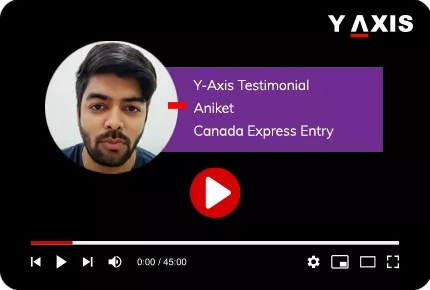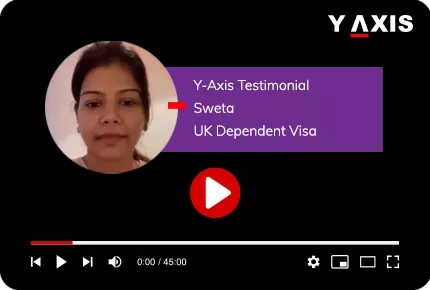Planning to Migrate to Singapore? Contact Y-Axis Dubai visa consultant and get to know your eligibility, Documentation and Visa process
Migrating to Singapore, Immigration to Singapore from Dubai, Singapore visa from Dubai





Building a new life in Singapore may involve several steps, such as obtaining a valid work visa, finding housing, and becoming familiar with the culture and customs of the country.
Singapore is a great place to live, with a vibrant culture, delicious food, and plenty of things to see and do. Take the time to explore the city and make the most of your new life in Singapore.




it will fetch you a high-paying job. This becomes
more important if you are thinking of moving to
another country on a job.

it will fetch you a high-paying job. This becomes
more important if you are thinking of moving to
another country on a job.

it will fetch you a high-paying job. This becomes
more important if you are thinking of moving to
another country on a job.
PR Visa applications through Y-Axis?
PR Visa applications through Y-Axis?
PR Visa applications through Y-Axis?



How to Apply for Singapore Visa in Dubai & Immigrate from UAE?
Singapore is one of the best places in the world to live, work, and stay with your family. Singapore has always been at the top of the list of international migration destinations for those looking to start a new life in another country.
Singapore has always had a welcoming attitude for immigrants. Every year, the number of immigrants in this country increases. Immigrants make up a significant portion of the population here.
A strong economy, low cost of living, and high quality of life are all reasons to relocate to Singapore.
Y-Axis Dubai offers a wide range of consulting services to help you apply for various types of migration pathways to Singapore.
Singapore Immigration process
Migrating for work
Qualified professionals can choose from 3 types of pathways to migrate to Singapore for work.
Employment Pass (EP):
If you’re a professional, first get a job in Singapore. Then your employer can apply for an EP on your behalf. You can get the EP or S Pass, depending on your experience and qualifications.
You must receive at least a fixed monthly salary of 3,900 Singapore dollars and have strong credentials to apply for the EP.
Personalized Employment Pass (PEP):
The PEP is independent from any employer, allowing you to pursue opportunities in Singapore without affecting the validity of the pass. Once you hold a PEP, you can stay in Singapore for up to 6 months, in between jobs to pursue a new job opportunity. The PEP is valid only for 3 years and is non-renewable.
S Pass:
This is for mid-level skilled staff. Candidates need to earn at least 2,200 Singapore Dollars a month and meet the assessment criteria.
Eligibility requirement for work permit
To apply, you
- must have a valid passport
- must be at least 18 years of age
- may work within the scope of work specified by the authorities in the work permits given
Once the application has been submitted, the processing time is usually 3 weeks for online applications and 8 weeks for manual applications.
Permit for dependents
Individuals who immigrate to Singapore on a work permit can bring their dependents to Singapore on a work permit.
This must be applied for by the organization that funded the EP, PEP, or S Pass for the person who wishes to bring his or her dependents. It’s valid for up to 2 years, depending on the validity of the EP, PEP, or S Pass.
Eligibility requirements for dependent pass
- The person who’s sponsoring must have a salary of at least 4,000 Singapore Dollars per month.
- Applicant must be legally married to the spouse.
- Children below the age of 21 are considered as dependents.
Permanent residency
There are 3 ways by which individuals can gain permanent residency in Singapore:
- Professional, Technical Personnel, and Skilled Workers scheme (PTS scheme)
- Global Investor Program scheme (GIP Scheme)
- Foreign Artistic Talent scheme (ForArts)
The following groups of foreigners are qualified to apply for permanent residency in Singapore under the PTS and GIP Schemes:
- Spouse and unmarried children of permanent residents or citizens of Singapore
- A Singapore citizen’s aged parents
- Immigrants on an employment pass or S pass
- Investors or entrepreneurs under the GIP scheme
Eligibility criteria under the Foreign Artistic Talent Scheme (ForArts)
- Professional experience and related training/education in their area of practice
- Exceptional accomplishments in the fields of the performing arts, creative arts, literary arts, architecture, and/or media
- Important contributions to the arts and culture scene in Singapore
- A clear track record of local engagements at leadership level
- Concrete plans to participate in Singapore’s arts and cultural sector in the future
Permanent residents in Singapore have access to public housing, high-quality schooling, and heavily subsidized healthcare facilities and won’t be subject to any restrictions with regards to their permits.
Document Checklist for Singapore Visa Applications
- Valid passport with at least 6 months’ validity from the date of entry.
- Completed visa application form (Form 14A for visitors, MOM eService form for work passes).
- Recent passport-sized photograph in color, taken within the last 3 months.
- Flight itinerary or proof of onward/return travel.
- Accommodation details such as hotel bookings or invitation letter from a host in Singapore.
- Proof of sufficient financial means (bank statements, salary slips, or sponsor details).
- Cover letter from local contact, employer, or inviting organization (if required).
- Educational and professional qualification certificates (for work passes, must be verified).
- Employment contract or job offer letter (for long-term work visas).
- Company business profile from ACRA (for employer-sponsored passes).
- Profession-specific licences or registrations (if applying for regulated roles like healthcare or law).
- Additional supporting documents requested by authorities (e.g., medical reports, parental consent for minors, business meeting invitations).
Step-by-Step Guide: How to Apply for a Singapore Work Pass (EP / S Pass)
Follow these steps for most employer-sponsored work visas. (Some requirements differ for EntrePass or ONE Pass.)
Step 1 — Confirm eligibility
Check the correct pass type, salary requirement, and (for EP) COMPASS points to ensure the role and candidate qualify.
Step 2 — Job advertising (if required)
Employers may need to advertise the role on MyCareersFuture to comply with the Fair Consideration Framework before applying.
Step 3 — Collect documents
Prepare the candidate’s passport copy, company ACRA profile, verified educational qualifications, and any profession-specific approvals.
Step 4 — File the online application
Employer or agent submits the application through the Ministry of Manpower portal and pays the fee (S$105).
Step 5 — Wait for assessment
Most EP or S Pass applications are processed within about 10 business days, though some may take longer.
Step 6 — Receive In-Principle Approval (IPA)
If approved, the IPA letter allows entry to Singapore and sets out conditions such as a medical exam if required.
Step 7 — Get the pass issued in Singapore
Employer submits final details, provides a local contact, and pays the issuance fee (S$225 for EP; add S$30 for Multiple Journey Visa if applicable).
Step 8 — Complete biometric registration
The candidate registers fingerprints and a photograph at the Employment Pass Services Centre within 2 weeks of pass issuance.
Step 9 — Receive the pass
The candidate activates the SGWorkPass app and receives the physical card within about 5 working days.
Step 10 — Apply for family passes (optional)
If eligible, dependants can be sponsored for a Dependant’s Pass or Long-Term Visit Pass.
Singapore Short-Term vs Long-Term Visas
| Feature | Short-Term Visas (Visit Passes) | Long-Term Visas (Work, Family & Residence Passes) |
| Purpose | Tourism, short business trips, family visits, medical treatment | Employment, entrepreneurship, study, family sponsorship, or long-term residence |
| Validity | Typically 30–90 days, extendable up to 89 days from entry | 1–5 years, depending on pass type and employer sponsorship |
| Entry Type | Granted on arrival or via an approved visa application | Must be applied for and approved before entering or starting work/study |
| Work Rights | Not permitted to work | Allowed to work or run a business (EP, S Pass, EntrePass) |
| Examples | Short-Term Visit Pass, Business Visit Pass | Employment Pass (EP), S Pass, EntrePass, Dependant’s Pass, Long-Term Visit Pass (LTVP), Permanent Residence (PR) |
| Pathway to PR | No | Some long-term passes may lead to Permanent Residence eligibility |
Recent Policy Updates: Singapore Visa & Work Pass Rules
-
Employment Pass (EP) Salary Increase
From 1 January 2025, the EP minimum qualifying salary has increased to S$5,600 per month (and S$6,200 for Financial Services). This applies to new applications; renewals follow from 1 January 2026. -
S Pass Salary Threshold Adjustment
From 1 September 2025, the minimum salary for S Pass holders will rise to S$3,300 (higher for Financial Services). Renewals will follow in 2026. -
COMPASS Framework Updates
The COMPASS evaluation system for Employment Passes now uses updated salary benchmarks and sectoral scoring. Candidates earning S$22,500 or more remain exempt from COMPASS. -
Mandatory Verification of Qualifications
Employers must submit verified educational and professional certificates for Employment Pass and S Pass applications through MOM-approved verification providers. -
Digital Entry and e-Pass System
All short-term visitors and pass holders now receive digital entry passes instead of passport stamps. The pass is emailed and must be presented with the passport when leaving Singapore.
{
"@context": "https://schema.org/",
"@type": "BreadcrumbList",
"itemListElement": [{
"@type": "ListItem",
"position": 1,
"name": "Home",
"item": "https://www.y-axis.ae/"
},{
"@type": "ListItem",
"position": 2,
"name": "Migrate",
"item": "https://www.y-axis.ae/migrate/"
},{
"@type": "ListItem",
"position": 3,
"name": "Singapore",
"item": "https://www.y-axis.ae/migrate/singapore/"
}]
},
{
"@context": "https://schema.org",
"@type": "FAQPage",
"mainEntity": [{
"@type": "Question",
"name": "How can I migrate to Singapore from Dubai or UAE?",
"acceptedAnswer": {
"@type": "Answer",
"text": "The process to migrate to Singapore from the UAE is given below:
Step 1: Identify the pathway that fits your profile—Employment Pass, S Pass, EntrePass, ONE Pass, Personalised Employment Pass (PEP), or a PR scheme.
Step 2: Secure an eligible job offer (for EP/S Pass) or prepare the required business plan or income evidence (for EntrePass/ONE Pass/PEP), and gather supporting documents.
Step 3: Submit your application online via the official portals (MOM for work passes; ICA/EDB for PR/investor routes), pay the fees, and respond promptly to any requests for additional information.
Step 4: After approval, complete required formalities—medical checks if requested, entry visa if applicable, and pass issuance steps including photo/fingerprint enrolment.
Step 5: Enter Singapore, collect or activate your pass, set up Singpass and tax registration, and later apply for Dependant’s/LTVP family passes or Permanent Residence when you meet the criteria."
}
},{
"@type": "Question",
"name": "What are the eligibility requirements to migrate to Singapore?",
"acceptedAnswer": {
"@type": "Answer",
"text": "The eligibility requirements to migrate to Singapore are given below:
Valid Passport – must be valid for the intended duration of stay.
Age – typically at least 18 years old for work or residence passes.
Educational Qualifications – recognized diplomas, degrees, or specialized certifications depending on the pass type.
Relevant Work Experience – professional or technical skills that align with Singapore’s labor market needs.
Minimum Salary Threshold – varies by pass type (e.g., SGD 3,150+ for S Pass, SGD 5,000+ for Employment Pass).
Health and Medical Fitness – applicants may need to pass a medical check-up if requested.
Clean Criminal Record – proof of good conduct may be required.
Financial Stability – ability to support yourself (and family, if applicable) while living in Singapore.
Employer or Business Sponsorship – most passes require a Singapore employer or a business plan (for entrepreneurs), unless applying under high-earning independent categories.
Genuine Intent – applicants must show that the purpose of entry is aligned with Singapore’s work, business, or long-term residency schemes."
}
},{
"@type": "Question",
"name": "Which visa is needed to move to Singapore for work?",
"acceptedAnswer": {
"@type": "Answer",
"text": "The visa type depends on your employment role and profile. The Employment Pass is designed for professionals, managers, and executives with higher salaries and academic qualifications. The S Pass is for mid-skilled workers with technical or associate professional skills. Entrepreneurs can apply for an EntrePass if they are establishing innovative businesses in Singapore. High-earning professionals may qualify for a Personalised Employment Pass or the ONE Pass, which provide more flexibility. Each visa has specific criteria regarding salary, qualifications, and sponsorship. Choosing the right pass depends on your career level and purpose of migration."
}
},{
"@type": "Question",
"name": "How much does it cost to migrate to Singapore?",
"acceptedAnswer": {
"@type": "Answer",
"text": "Detailed information about the cost to migrate to Singapore is given below:
Pass / Visa Type
Application Fee (SGD)
Issuance Fee (SGD)
Other Possible Costs
Employment Pass (EP)
105
225
30 (Multiple Journey Visa, if required)
S Pass
105
225
30 (Multiple Journey Visa, if required)
Personalised Employment Pass (PEP)
105
225
30 (if applicable)
ONE Pass
105
225
30 (if applicable)
EntrePass
105
225
30 (if applicable)
Dependant’s Pass / Long-Term Visit Pass
105
225
30 (if applicable)
Permanent Residence (PR)
100
20 (Entry Permit)
N/A
Additional Costs
Varies
Varies
Medical check-up (SGD 80–120), health insurance, document notarization"
}
},{
"@type": "Question",
"name": "What is the processing time for Singapore migration visas?",
"acceptedAnswer": {
"@type": "Answer",
"text": "The processing time for Singapore Migration Visa is given below:
Pass / Visa Type
Average Processing Time
Employment Pass (EP)
10 business days
S Pass
10 business days
Personalised Employment Pass (PEP)
8 weeks
ONE Pass
4 weeks
EntrePass
8 weeks
Dependant’s Pass / Long-Term Visit Pass
3 weeks
Permanent Residence (PR)
~6 months"
}
},{
"@type": "Question",
"name": "Can I get Singapore PR directly while applying from abroad?",
"acceptedAnswer": {
"@type": "Answer",
"text": "No, in most cases you cannot get Singapore Permanent Residence (PR) directly while applying from abroad. Generally, professionals are expected to first live and work in Singapore on a valid work pass, such as an Employment Pass or S Pass, and then apply for PR after establishing a track record in the country. However, there are limited exceptions: applicants under the Global Investor Programme (GIP), who make significant investments in Singapore, or those applying through family sponsorship (spouse, child, or parent of a Singapore citizen/PR) may apply from overseas. Otherwise, direct PR approval is uncommon."
}
},{
"@type": "Question",
"name": "Is a job offer required to migrate to Singapore?",
"acceptedAnswer": {
"@type": "Answer",
"text": "Yes, in most cases a job offer is required to migrate to Singapore, as work passes like the Employment Pass and S Pass must be sponsored by a Singapore-based employer. The employer submits the application on your behalf, and your eligibility depends on meeting salary and qualification requirements. However, there are exceptions: the EntrePass allows entrepreneurs to migrate without a job offer by establishing an innovative business, while the Personalised Employment Pass (PEP) and ONE Pass enable high-earning professionals or globally recognized talent to apply without securing employment first. Still, for most applicants, a job offer is essential."
}
},{
"@type": "Question",
"name": "Can I take my family with me when migrating to Singapore?",
"acceptedAnswer": {
"@type": "Answer",
"text": "Yes, most Singapore work visas allow family sponsorship if certain income criteria are met. Employment Pass or S Pass holders earning a minimum salary can bring their legally married spouse and children on Dependant’s Passes. Common-law spouses, stepchildren, or parents may qualify under the Long-Term Visit Pass scheme. High-earning professionals on ONE Pass or PEP have similar family privileges. EntrePass holders can sponsor family members after meeting specific business and employment milestones. Family members may also be eligible to work in Singapore if they obtain the required passes or approvals."
}
},{
"@type": "Question",
"name": "What are the benefits of getting Singapore PR?",
"acceptedAnswer": {
"@type": "Answer",
"text": "The benefits of getting a Singapore PR are given below:
Long-term residency – live, work, and stay in Singapore without depending on work pass renewals.
Career flexibility – freedom to change jobs or employers without needing a new work pass application.
Family sponsorship – ability to sponsor spouse, children, and parents for PR or long-term stay.
Central Provident Fund (CPF) contributions – both employee and employer contribute, building retirement, housing, and healthcare savings.
Education access – children enjoy easier enrollment in public schools and lower school fees compared to foreigners.
Healthcare benefits – access to subsidized medical care and national healthcare schemes.
Housing options – eligibility to purchase resale HDB flats and apply for housing loans.
Pathway to citizenship – opportunity to apply for Singapore citizenship after fulfilling residency requirements.
Stability & security – strong social, political, and economic environment for long-term settlement."
}
},{
"@type": "Question",
"name": "Which is better for migration: Singapore Employment Pass or PR?",
"acceptedAnswer": {
"@type": "Answer",
"text": "Both options have advantages depending on your goals. The Employment Pass is faster to obtain, tied to your employer, and ideal for professionals wanting to work in Singapore immediately. However, it requires regular renewals and limits flexibility in changing employers. Permanent Residence, on the other hand, provides long-term stability, greater career freedom, and access to CPF and family benefits, but it is harder to secure and comes with obligations, such as national service for male children. Many professionals start with an Employment Pass and later transition to PR for more permanent settlement."
}
},{
"@type": "Question",
"name": "What is the difference between a short-term and long-term Singapore visa?",
"acceptedAnswer": {
"@type": "Answer",
"text": "A short-term visit pass (STVP) is typically issued on arrival for eligible nationalities and allows a stay of up to 30 days, which can sometimes be extended to 90 days. It is designed for purposes such as tourism, short business trips, or medical treatment. In contrast, a long-term visit pass (LTVP) must be applied for in advance and is intended for extended stays, usually for family members of Singapore citizens or residents, or those requiring long-term care. It can be valid for up to two years and provides greater flexibility for extended visits or family reunification."
}
},{
"@type": "Question",
"name": "How do I complete the Singapore visa application form?",
"acceptedAnswer": {
"@type": "Answer",
"text": "Completing the Singapore visa application form depends on whether you are applying for a short-term visit pass or a long-term visit pass.
You can follow the below steps for complete assistance with the Singapore visa application form:
Step 1: Identify the correct visa type – Short-Term Visit Pass (STVP) or Long-Term Visit Pass (LTVP).
Step 2: Access the official application form online through the Immigration & Checkpoints Authority (ICA) or authorised visa agents.
Step 3: Fill in personal details, travel information, purpose of visit, and sponsor details (if applicable).
Step 4: Upload required documents such as passport copies, photographs, financial proof, and relationship documents for long-term passes.
Step 5: Review all information carefully before submitting to avoid errors.
Step 6: Pay the applicable visa fee online.
Step 7: Schedule and attend an appointment (if required) to provide biometrics and original documents at ICA or a visa centre.
Step 8: Track your application online until a decision is made."
}
},{
"@type": "Question",
"name": "What documents are required for a Singapore visa?",
"acceptedAnswer": {
"@type": "Answer",
"text": "The documents required depend on whether you are applying for a short-term or long-term visit pass:
For a Short-Term Visit Pass (STVP):
Passport valid for at least six months
Completed SG Arrival Card (submitted online before travel)
Confirmed return or onward travel tickets
Proof of sufficient funds for the duration of stay
For a Long-Term Visit Pass (LTVP):
Proof of relationship with the sponsor (marriage or birth certificates)
Sponsor’s identification and valid work/residence pass
Financial documents or letters of support from the sponsor
Additional supporting evidence, depending on the purpose of stay
Certified translations for documents not in English"
}
},{
"@type": "Question",
"name": "How long does it take to process a Singapore visa?",
"acceptedAnswer": {
"@type": "Answer",
"text": "Short-term visit passes are processed immediately at the point of entry, provided all documents are in order. In most cases, eligible travellers receive approval on arrival without delay. Long-term visit passes, however, require more time since they involve detailed checks by the Immigration & Checkpoints Authority. Processing for LTVPs generally takes several weeks, though the exact time depends on the completeness of the application and the applicant’s circumstances. Applicants are advised to submit their forms well in advance of intended travel to avoid disruptions and to allow sufficient time for review and approval."
}
},{
"@type": "Question",
"name": "What should I do if my Singapore visa application is refused?",
"acceptedAnswer": {
"@type": "Answer",
"text": "If your Singapore visa application is refused, you should take the following steps:
Review the refusal notice carefully to understand the exact reason for rejection.
Check for common issues such as incomplete forms, missing documents, or ineligibility.
Correct any errors in your application and ensure all forms are filled accurately.
Gather stronger supporting documents (e.g., updated financial statements, clearer proof of travel purpose or relationship).
Reapply with improved evidence addressing the refusal grounds.
For long-term passes, focus on financial stability and clear proof of family or sponsor relationship.
Be persistent and ensure thorough preparation to improve approval chances."
}
}]
}
]